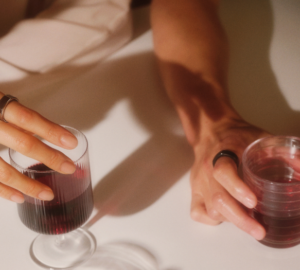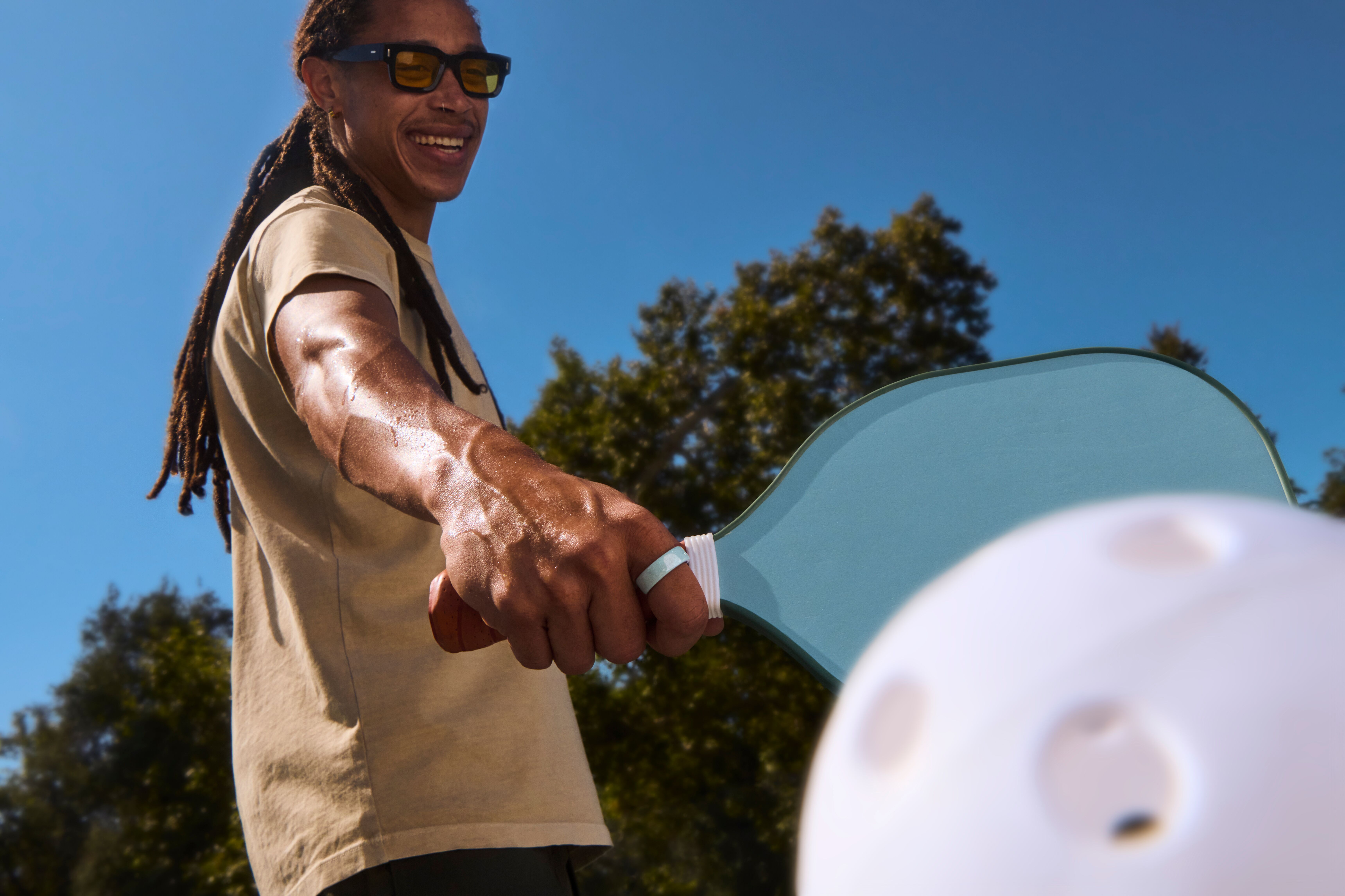Your brain is the control center for almost every important process: your memory, focus, emotional regulation, decision-making, balance, metabolism, and even longevity. And like every other organ, it ages.
Cognitive decline doesn’t happen overnight; it develops gradually through decades of micro-choices. From how you sleep to what you eat—it all influences your brain.
The good news: how your brain ages is not a fixed process. Emerging research shows that up to 40% of dementia cases may be preventable through lifestyle alone. “I want people to know they are in control of their health,” says Dr. Ryan Williamson, neurologist, Oura Member, and author of The Incredible Brain. “People often say, ‘My mom had Alzheimer’s,’ or ‘diabetes runs in my family.’ But in most cases, individuals have far more control than they realize.”
He gives the analogy of a ship leaving London one degree off course. While it may not seem like much, by the time it crosses the Atlantic, that one degree difference can bring you somewhere totally different. “Your health is the same—small daily habits compound, in either direction," he says.
Below, learn why cognitive vitality matters, and Dr. Williamson’s five-step protocol for better brain health.
Why Does Cognitive Vitality Matter?
Cognitive vitality isn’t about being smart. It’s about preserving the mental sharpness, emotional balance, and adaptability required to live well into your 60s, 70s, 80s, and beyond. When your brain is resilient, you can:
- Think more clearly
- Recover from stress faster
- Learn and remember more effectively
- Maintain emotional stability
- Protect against age-related decline
- Sustain your independence and quality of life
In other words: Your brain plays a major role in how well you age.
How Lifestyle Shapes Brain Health
Your brain is metabolically expensive, using about 20% of your daily energy, even at rest. Because of this, it’s especially sensitive to inflammation, oxidative stress, glucose fluctuations, chronic cortisol exposure, and poor sleep. Every lifestyle choice either strengthens its resilience or slowly erodes it.
“About 70 to 90% of all health outcomes are due to lifestyle,” says Dr. Williamson. “People get distracted by the idea that they need peptides, stem cells, or expensive treatments. Those things have specific use cases. But they’re not the foundation.”
Here’s how your daily habits directly influence brain aging:
- Sleep clears metabolic waste through the glymphatic system—including beta-amyloid, the protein linked to Alzheimer’s.
- Movement and aerobic activity increase BDNF (brain-derived neurotrophic factor), which supports neuroplasticity and memory formation.
- Stress regulation reduces cortisol, stabilizes the autonomic nervous system, and prevent chronic inflammation—a major driver of cognitive decline.
- Eating high-quality foods provide your body with essential vitamins, minerals, and antioxidants that nourish the brain and protect it from oxidative stress.
- Social connection acts as a neuroprotective buffer, lowering inflammation, reducing risk of dementia, and enhancing emotional resilience.
And Oura Ring can help you track all of these habits, giving you concrete information that you measure, track, and optimize, Dr. Williamson notes.
The B.R.A.I.N. Protocol™: A Simple Daily System for Better Brain Health
Below, Dr. Williamson shares his science-backed B.R.A.I.N. Protocol™ from his book, The Incredible Brain. This protocol is built on five daily practices that support cognitive vitality, emotional resilience, physical longevity, and metabolic health.
B: BREATH (5 minutes)
Goal: Reset your nervous system
Why it matters: Slow breathing and mindfulness activate the parasympathetic nervous system, reduce cortisol, and improve HRV.
Options:
- 5-minute meditation or breathwork
- Gratitude journaling (3 items daily)
- Mindful walking without devices
- Extended exhale: inhale for 4, exhale for 6 × 10 breaths
| Member Tip: Within Explore content on the Oura App, you can browse over 50 guided audio sessions from Oura's own world-class instructors and leading partners. |
R: REST (7.5–9 hours)
Goal: Optimize sleep for repair, detoxification, and memory formation
Why it matters: Sleep is when the brain clears metabolic waste, consolidates memories, regulates hormones, and restores the nervous system.
READ MORE: Why Sleep Matters
Essentials:
- Consistent bedtime and wake time (within 1 hour)
- 10–15 minutes of morning light exposure
- No screens 1 hour before bed
- Cool, dark environment (65–68°F)
A: ACTIVITY (20+ minutes)
Goal: Move intentionally every day
Why it matters: Regular movement improves longevity, supports mood regulation, enhances metabolic health, and protects cognitive function.
Minimum effective dose:
- 10,000+ steps per day, or
- 20+ minutes of intentional exercise
- Weekly mix: 2× strength, 3× cardio, 1× HIIT
I: INTAKE (Nourish Your Body)
Goal: Prioritize nutrient-dense, whole-food nutrition
Why it matters: Proper nutrition stabilizes blood glucose, fuels brain function, supports hormone balance, and influences inflammation—key drivers of long-term health.
| Member Tip: With Oura Meals, you'll uncover insights into your dietary choices, including a nutritional breakdown, personalized feedback, and meal timing. |
Guidelines:
- Whole-food, mostly plant-based diet
- Protein target: 0.7–1 g per lb of body weight
- Hydration: half your body weight in ounces per day
- 8–12 hour eating window
READ MORE: How Late-Night Eating Can Impact Your Sleep
N: NURTURING (Connection)
Goal: Create at least one meaningful social interaction daily
Why it matters: Social connection is one of the strongest predictors of longevity. Authentic conversations lower stress, reduce inflammation, and support emotional health.
Ideas:
- Quality conversation with a loved one
- Helping someone
- Expressing gratitude
- Connecting with a stranger
RELATED: Introducing Oura Circles: Connect with Your Community and Reach Your Goals Together
The Bottom Line
Your brain isn’t something to think about only later in life; it’s an organ shaped, strengthened, and protected by the choices you make every day. “Small healthy habits compound over time,” explains Dr. Williamson. “It’s a minimally perceptible, almost imperceptible change day to day, but after months and years of making healthy choices, you can have a completely different health profile.”
How you breathe, move, eat, rest, and connect are course-corrections that add up over years. With tools like Oura, you can see those shifts reflected in your biometrics, turning invisible habits into tangible progress.
RELATED: Live Stronger, Longer: Longevity Tips from Oura Members












